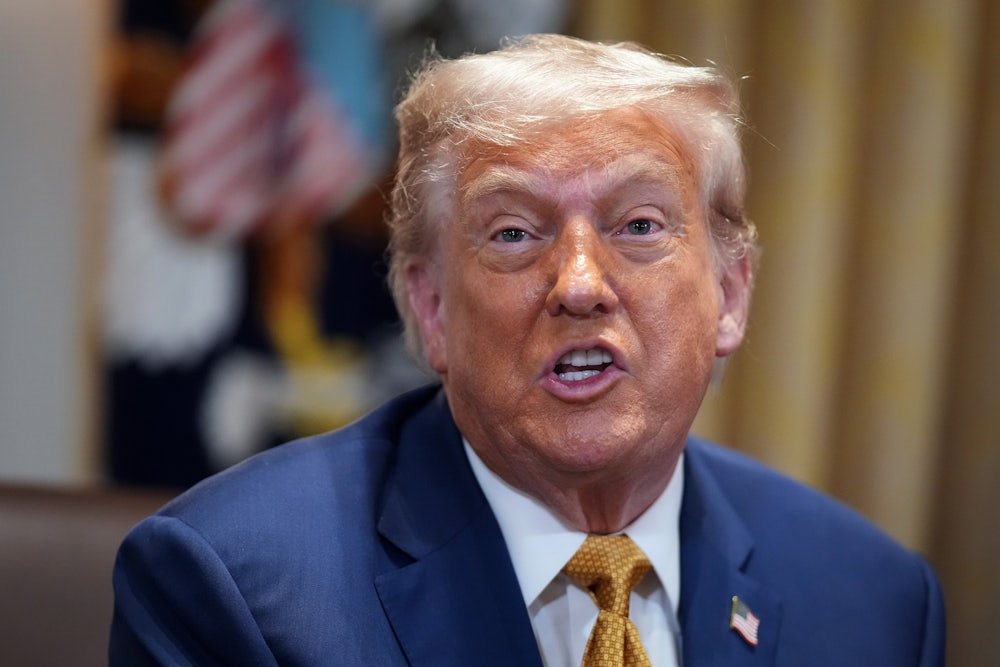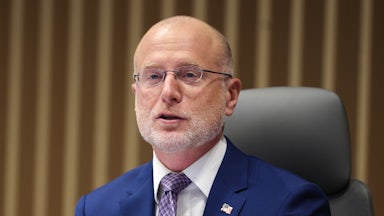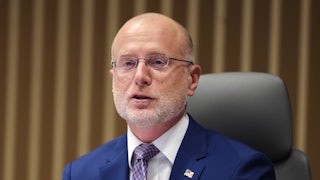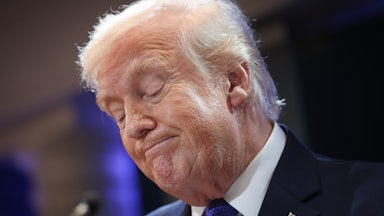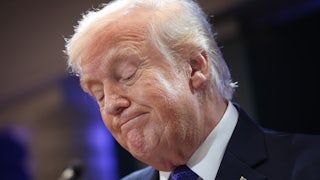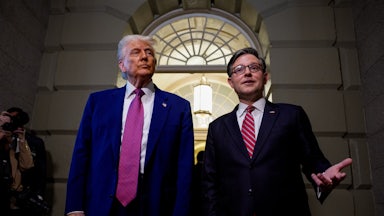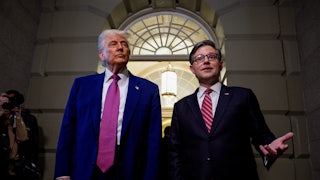Of the many ways that Donald Trump, abetted by the U.S. Supreme Court, has laid waste to the executive branch and ransacked civil society, one Trump target above all others requires our constant vigilance and hair-trigger sensitivity.
That is federal elections—and the prospect that Trump will try to achieve in pseudo-legal fashion what he failed to accomplish through brute force after the 2020 election he lost to President Biden.
Democracy can weather a lot of damage and unlawful conduct at Trump’s hands, but if he succeeds in taking control of the machinery of elections, it could be a fatal blow.
That’s why a barely noticed story in The New York Times last week was so worrisome. As reported by the Times, unidentified senior administration officials have directed DOJ lawyers to explore the possibility of federal criminal charges against state or local election officials deemed to have failed to adequately safeguard computer systems.
Tellingly, the initiative isn’t grounded in any new evidence, data, or legal theory. It’s not about truth or justice. It’s a political and ideological ploy, reportedly incubated in the Project 2025 workshop—part of Trump’s broader effort to delegitimize democratic institutions and seize autocratic control.
I’ve often said the best way to unravel a Trump scheme is to start with the lie that always forms its foundation. That’s not hard here: It’s the same, repeatedly discredited but inexhaustibly pressed canard that elections are rife with fraud, including votes cast by undocumented immigrants.
It’s bogus. The 2020 and 2024 elections were remarkably secure, and there’s no reason to suspect 2026 and 2028 will be any different.
The lie of widespread voter fraud has been exhaustively debunked. More than 60 court cases, state audits, and bipartisan election officials confirmed 2020 was secure. Even Trump’s own Cybersecurity and Infrastructure Security Agency called it “the most secure in American history.”
But with Trump, the goal isn’t to advance facts—much less convince a court. It’s to inject fear and chaos into our institutions and force them to lean in to his advantage. And there’s no real counterweight—only the abstract values of truth and institutional integrity, left to fend for themselves.
Poll workers are traditionally civic-minded, mild-mannered citizens doing their part for democracy—a necessary and fairly thankless part. In 2020, hundreds of thousands of Americans undertook the mitzvah of staffing the polls. Many were elderly—your neighbor, your church usher, your grandma. Many were first-timers. These weren’t political operatives; they were regular people from the bedrock of their communities. They did it because they believed in the process.
Trump is trying to extinguish that belief—and cow them into leaning his way.
What makes this latest maneuver so dangerous is that it aims not just to relitigate 2024 but to pre-rig 2028. If Trump can scare off honest poll workers and install loyalists, he won’t need to overturn the results. He can subvert the process from the inside.
We’ve seen this playbook before. After the 2020 election, Georgia poll workers Ruby Freeman and her daughter Shaye Moss became household names for all the wrong reasons. Trump and Rudy Giuliani pushed a grotesque conspiracy theory that they had smuggled illegal ballots in a suitcase. It was a lie. But it led to months of death threats, harassment, and psychological torment. Freeman had to flee her home. Moss had to leave her job. These are the people Trump wants you to think are criminals.
Now, with the backing of a major-party nominee and the muscle of right-wing media, Trump is threatening to turn that isolated smear campaign into standard operating procedure. The message is simple: Help run an election that Trump loses, and we will come for you.
And, tragically, it may be working. Across the country, election officials have resigned in droves. Offices that were once nonpartisan and low-profile have become hotbeds of threats and suspicion. Trump has already browbeaten major law firms and entire universities into submission.
The sad truth of recent months is that key pillars of civil society—law firms, universities, and more—often crumble under Trump’s pressure campaigns, no matter how baseless they are in law or fact.
That is the prism we need to apply to this story that might otherwise get tossed into the weekly pile of Trump outrages. Trump remains a clear and present danger to democracy, and seizing control of the election process remains the most direct path to authoritarianism. Criminalizing poll workers isn’t just another zany headline from the Trumpverse—it’s a test run for a longer, darker project.
If the Justice Department still had the independence and apolitical ethos it once did—before the Bondi-Blanche-Bove crew came in swinging—it wouldn’t entertain Trump’s request. But there’s little hope of that now. Ironically, this is the same DOJ that has gutted its Voting Rights Section—shrinking from over 30 attorneys to just a handful—and abandoned the Biden administration’s voting rights lawsuits. And yet now, it appears ready to talk the talk, turning its attention to phantom threats in order to give Trump a leg up in subverting the process.
So be it. It falls to the rest of us to maintain laser focus on federal elections and not permit Trump and company to gain a foothold—through any entryway.
It’s not alarmist to worry that Trump, having failed to overturn the last election through brute force, is now laying the groundwork to capture the next one through pseudo-legal means. If the Justice Department becomes the tip of the spear—targeting election officials not for fraud but for imagined cybersecurity lapses—it would mark a dangerous escalation in the project to warp our institutions for authoritarian ends.
We’ve already seen what it looks like when Trump tries to overthrow an election from the outside. What should terrify us now—and keep us on high alert—is the prospect of his doing it from the inside, cloaked in the machinery of law. That’s not just a crisis for the next election—it’s an existential threat to the republic itself.
